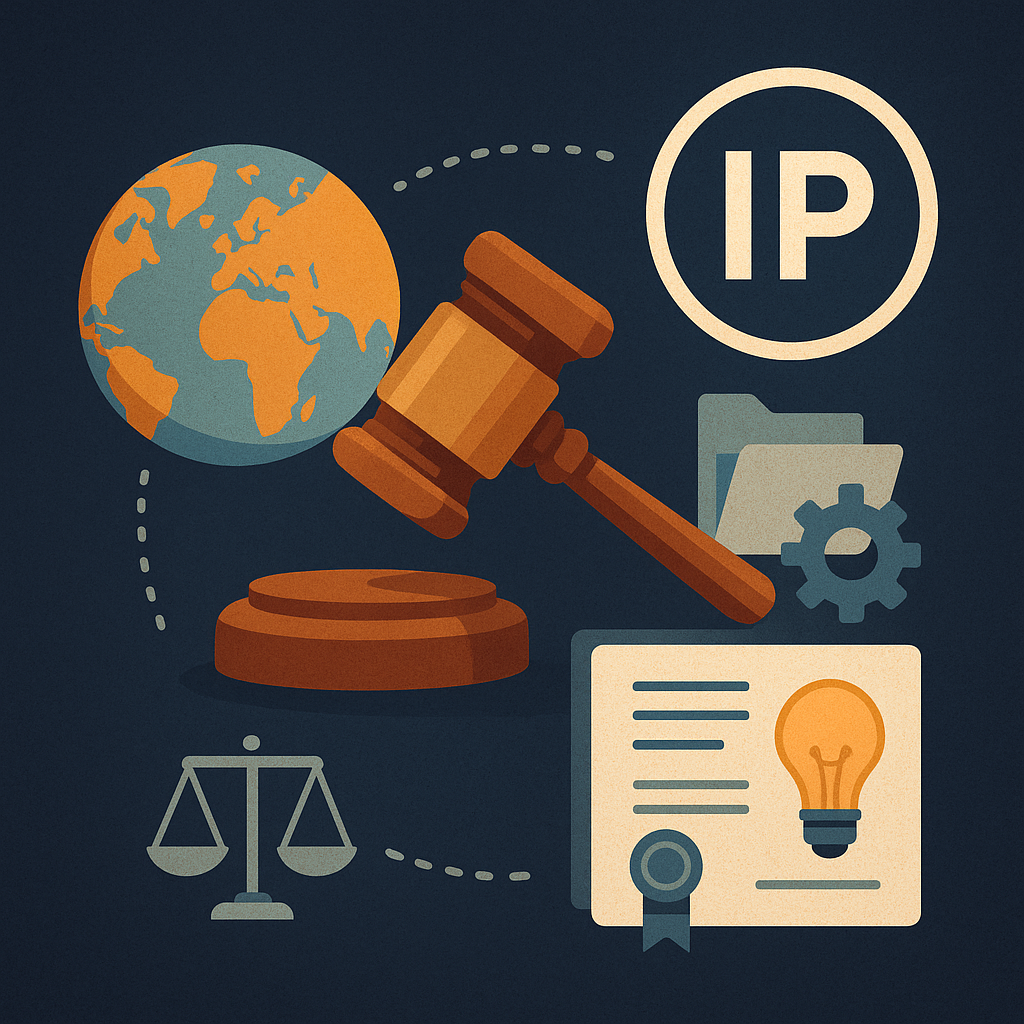Media & Events
Double Trouble – Apple’s Recent Legal Setbacks Highlight Key Lessons in Global IP Strategy
- May 12, 2025
 Apple Inc. continues to sit at the forefront of global innovation, but even the most sophisticated technology companies are not immune to complex legal challenges. In recent weeks, Apple has faced two significant intellectual property (IP) setback, one in the United States and one in the United Kingdom, each with far-reaching implications for companies navigating patent litigation, standards licensing, and global IP enforcement.
Apple Inc. continues to sit at the forefront of global innovation, but even the most sophisticated technology companies are not immune to complex legal challenges. In recent weeks, Apple has faced two significant intellectual property (IP) setback, one in the United States and one in the United Kingdom, each with far-reaching implications for companies navigating patent litigation, standards licensing, and global IP enforcement.
This blog examines two recent decisions that have put Apple’s IP practices under scrutiny: one involving the use of Applicant Admitted Prior Art (AAPA) in a U.S. case before the Federal Circuit, and another concerning royalty obligations for standard-essential patents (SEPs) in the UK.
Federal Circuit Reverses PTAB Decision: AAPA Misapplied
In April 2025, the U.S. Court of Appeals for the Federal Circuit overturned a favorable ruling for Apple by the Patent Trial and Appeal Board (PTAB). The case centered on Apple’s challenge to a patent using a combination of a printed publication and Applicant Admitted Prior Art (AAPA), statements made in the challenged patent’s own specification acknowledging the existence of certain prior art.
The PTAB had sided with Apple, holding that the combination was valid grounds to invalidate the claims. However, the Federal Circuit disagreed, clarifying that AAPA alone does not constitute “prior art consisting of patents or printed publications” as required under the America Invents Act (AIA) for inter partes review (IPR) proceedings. The court ruled that while AAPA may inform a skilled artisan’s understanding, it cannot be the primary basis for an obviousness challenge.
Implications:
- Limits of IPR Strategy: Companies seeking to invalidate patents at the PTAB must ensure their arguments rely primarily on statutory prior art. Internal admissions, even when found in the patent under review, are not enough.
- Importance of Procedural Precision: This case reinforces how procedural interpretation can outweigh substantive arguments. Understanding statutory language is critical to litigation success.
- Drafting Risk Awareness: While not directly at issue in this case, the broader takeaway for patent applicants is to be cautious when characterizing prior art in their applications, as such language can be used in litigation, though with limits.
- Increased Scrutiny of PTAB Practices: The ruling may prompt changes in how PTAB applies AAPA going forward, potentially raising the bar for IPR petitioners more broadly.
UK Court of Appeal Orders Apple to Pay $502 Million in FRAND Dispute
Just days later, Apple received another legal setback, this time from the UK Court of Appeal. On May 1, 2025, the court affirmed a judgment requiring Apple to pay $502 million to Optis Cellular Technology LLC for a global license to its 4G standard-essential patents. The case, which began when Optis sued Apple in 2019, centered on the appropriate amount Apple must pay under fair, reasonable, and non-discriminatory (FRAND) licensing obligations, which are required under global standards-setting agreements.
The decision dramatically increased the damages from the UK High Court’s 2023 estimate of just over $56 million which was made by the judge at the High Court of England and Wales without reliance on experts from either company. The UK Court of Appeals found that a lump-sum license more accurately reflected the global nature of Apple’s 4G usage and the market value of Optis’s portfolio when awarding $502 million based on a $0.15 per unit royalty. Apple had previously indicated that it would not accept a license on terms set by the UK court and may appeal this decision.
Implications for large IP holders and the broader IP landscape:
- FRAND Licensing as a Global Risk: The case signals a shift in how courts outside the U.S. are willing to impose significant global licensing terms, even where the jurisdictional scope is limited.
- Litigation Forum Strategy: SEP holders may increasingly look to the UK and other jurisdictions as favorable venues for global FRAND determinations.
- Financial Exposure in SEP Disputes: The magnitude of the damages awarded suggests that SEP enforcement remains a serious financial risk for tech companies, especially those reliant on standard essential patents.
Strategic Takeaways for Technology Companies
Taken together, these rulings offer several lessons for companies navigating the increasingly complex world of IP litigation:
- Global IP Planning is Essential: Legal decisions in one country can have global implications. Multinationals must anticipate and coordinate litigation strategies across multiple jurisdictions.
- Proactive Legal Audits: Regular reviews of patent drafting practices and litigation exposure are crucial. Ensuring that internal admissions in patents does not open doors for unintended invalidity risks is now more important than ever.
- Valuation and Licensing Readiness: As courts impose large-scale licensing obligations, companies must be prepared to defend or justify the value of their own and others’ patent portfolios, especially under FRAND regimes.
Conclusion
Apple’s recent legal setbacks illustrate the challenges even the most sophisticated companies face in managing global intellectual property. The Federal Circuit’s reversal and the UK’s expanded damages ruling in the Optis case serve as timely reminders that patent strategy must be tightly integrated with legal, technical, and business planning.
For consulting firms advising clients on IP strategy and valuation, these cases reinforce the value of forward-looking risk assessments, cross-border legal coordination, and ongoing patent portfolio management. As courts refine the rules around prior art and FRAND licensing, staying ahead of evolving jurisprudence will be key to maintaining competitive advantage and avoiding costly surprises.
- Tags:
- IP education
- IP Strategy
- Patents
